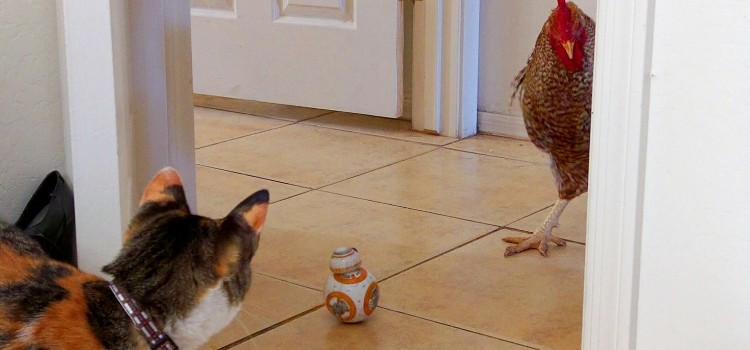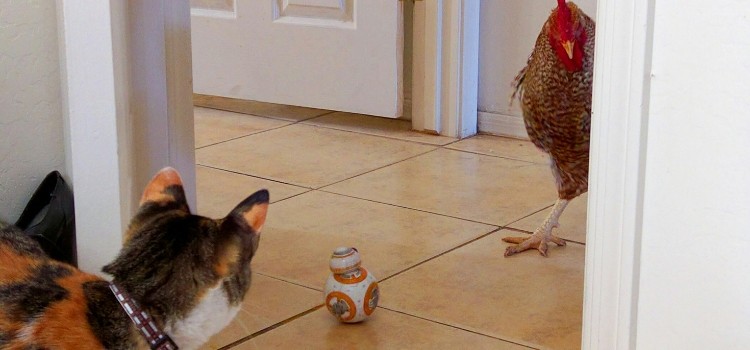As an Amazon Associate I earn from qualifying purchases.
My Cat Has Eaten a Bird: What Next?
Cat owners often observe with mixed emotions their pets grabbing and consuming birds. This can be shocking, and it may raise questions on what to do next. However, if your cat has recently killed and eaten a bird, here is how you should handle the situation carefully and responsibly as a concerned pet owner.

Risks of Cats Eating Birds
Cats are good hunters who consider capturing birds natural. However, it should be noted that birds pose some health hazards to cats when consumed. Birds may harbor diseases or parasites that could be passed on to your pet. In addition, feathers, beaks, and claws can lead to choking or gastrointestinal obstructions in case these parts are not handled properly.
Understanding What Happened
Although seeing your cat with a bird can provoke negative feelings in you, this behavior is perfectly normal for felines. Cats have been hunters since time immemorial hence this hunting activity is innate within them. However, living today presents additional challenges because domestic cats no longer hunt mainly for food but they do so just to play games.
Potential Health Hazards That Can Occur When Cats Eat Birds
The following are some dangers that might result from eating a bird:
Choking Risks: there can be small bones, feathers, or other non-food parts that are likely to cause chocking
Parasites and Diseases: There may be the presence of ticks, fleas, and worms among other parasites in the birds, which could transmit certain diseases to the cat.
Gastrointestinal Complications: Swallowing feathers or other remains from the bird may block up the digestive canal.
Long-Term Consequences
If left unchecked, a cat’s habit of hunting birds can have broader effects on the local bird population, particularly in urban settings. Over time it would therefore make sense to monitor and if possible restrain such habits both for pets’ life’s sake as well as the preservation of the local ecosystem.
Immediate Actions
Ensure that your pet is safe and well after your cat eats a bird.
Monitor for Any Signs of Illness
Following the initial shock, it is essential to observe the cat closely for signs of illness. These may include but are not limited to:
Exhaustion
No appetite
Vomiting
Diarrhea
Strain when using the litter box.
Coughing
If you notice any of these symptoms in your cat, you should seek veterinary help immediately.
Ensuring Your Home is Safe
Check the surroundings first and remove any risks that could be associated with the bird or its remains that are reachable by your cat. Ensure other pets or children do not come into contact with remnants.
Veterinary Advice
Whenever there are doubts about a pet’s health, it is wise to consult with a professional vet first to rule out potential risks.
When Is It Time to See Professional Help?
If some sudden behavioral changes are observed in cats such as excessive lethargy or pain, then schedule an appointment with the veterinarian straightaway.
Steps to Take if the Cat Shows Signs of Illness
Follow your vet’s guidelines or suggestions
Prevention is better than cure
It is important to prevent further bird-catching incidents from occurring through proactive measures.
How to prevent cats from catching birds
There are many ways to stop your cat from killing birds:
Bells on Collars: Attach a bell to your cat’s collar, this would enable the creature to hear the cat’s footfall before any killing.
Supervised Outdoor Time: Cat owners should watch over the outdoor activities of their pets when it is possible.
Outdoor Enclosures: Constructing or purchasing outdoor enclosures for cats limits hunting opportunities.
Stimulating Toys and Activities Are Essential
To channel their hunting instincts into safe and healthy outlets, buy some toys that will keep them busy and play with them regularly. In addition, such an approach will help nurture their natural curiosity as well as deepen the bond between you and your furry friend who lives indoors.
Communities
You are not alone in having a bird-catcher cat. Reach out to other pet owners as well as local animal activists to get advice and support each other.
Sharing Experiences & Advice
Online communities and forums can provide lots of shared experiences including advice giving.. You may come across situations that mirror yours, thus obtaining clues on what others do during similar occurrences.
Seeking Assistance from Professionals
Call on professionals in the field such as local wildlife authorities or staff at animal rescue centers. They have very specific knowledge about how feline behavior may impact wildlife populations directly around them.
My Cat Killed a Bird What Should I Do?
Afterward, ensure that you immediately protect your cat and observe its condition. By taking steps now to curb future hunting, you can avoid potential problems for both your domesticated animal baby and indigenous avian species in your area.
Questions Asked Frequently (FAQ)
What should i do if my cat catches a bird?
- Check for safety first of all.
- Watch closely for signs of illness or any discomfort.
- Consult your veterinary doctor if necessary.
- Take precautions to avoid such incidents in the future.
Can a cat get sick from eating a bird?
Yes, there are chances of diseases, parasites, and stomach issues due to eating birds. These incidences may not always be harmful but take necessary steps to protect the health of your cat.
Can Cats Eat Birdseed?
It won’t hurt them but it’s not a good daily meal; at least one should limit their access. A couple of nibbles here and there might not mean much, but be wary if you see your cat becoming an avid eater of birdseed as this could indicate some dietary deficiency.
Conclusions
When cats catch birds, owners need to find ways of responding immediately and also ensuring that there is no recurrence in the future. By being aware of the risks involved, taking prompt actions,, and involving themselves in conversations with other pet owners, individuals can easily accomplish this objective thereby leading to the safe lives of their cats along with participating responsibly in ecosystem conservation through coexistence with local wildlife. Please remember that small changes can have huge impacts on both the well-being and safety of pets as well as entire ecosystems.”
Amazon and the Amazon logo are trademarks of Amazon.com, Inc, or its affiliates.
